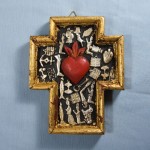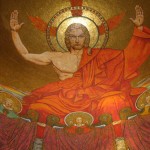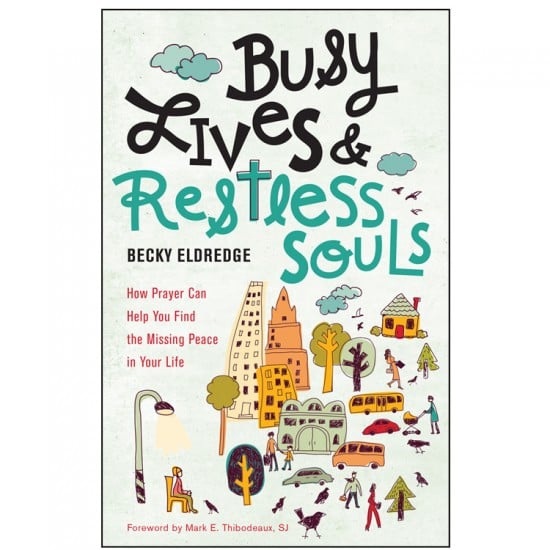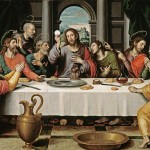In one of the many emails I received in celebration of the recent feast of St. Francis of Assisi, Richard Rohr offered a quote attributed to St. Francis that touched me deeply:
“The Lord has shown me that he wants me to be a new kind of fool in the world, and God does not want to lead us by any other knowledge than that.”
Rohr also recalled how Pope Francis, in Laudato Si’, painted a delightful picture of St. Francis preaching to flowers and animals, calling all creatures great and small his “brothers” and “sisters” and bursting in to spontaneous song, heart overflowing with love.
And he concluded that both St. Francis and St. Clare of Assisi:
“…were not so much prophets by what they said as in the radical, system-critiquing way that they lived their lives. They found both their inner and outer freedom by structurally living on the edge of the inside of church and society…[and] showed us it is possible to change the system not by negative attacks…but simply by quietly moving to the side and doing it better!”
I’ve been thinking something similar of late. Especially as the upcoming election continues to confound all logic and my friends and family find themselves, like the rest of the world, utterly and hopelessly dumbfounded.
Only a few years ago I would’ve been passionately pounding the keys, carpal tunnel brace tightly fastened, fighting the good fight on one or more of my online “soapboxes.”
I have not done that this election season. I just can’t get up a full head of steam for some reason no matter how absurd things get.
Wait—I know the reason. I was baptized this year. And suddenly, I’m a holy fool, too.
Now, most holy fools are wiser than we think. I’m not there yet by a long shot. But I’ve learned something about that from two cultures: the one into which I was born and the one into which I was adopted many years later.
As a Black child growing up in the inner city of Chicago, my first encounters with holy foolishness were accompanied by the joyful noise of full-throated, full throttle “shouts,” led by high stepping pastors and choirs with what seemed to be indestructible vocal cords.
I was mortified, however, when the “Holy Ghost parties” began. All of the most pious sisters, the most well-respected and normally dignified brothers would vault from their seats, whirling like dervishes and howling like banshees.
Like most of the younger folks in attendance, as the frenzy crept from pew to pew I covered my face with both hands when female relatives jumped up to do their “holy dance.” And I would fervently pray to the same Jesus who had apparently driven the others barking mad to please spare me the humiliation of seeing my mother pass out on the floor in front of the entire congregation.
She always managed to avoid this. But some of my other friends were not so lucky. And truth be told, I think my mother felt left out when she didn’t “get happy” like the others. It was a sign of favor, to be “touched by God” in that way.
I did not care. I did not want Him touching my mother and turning her into a raving lunatic in front of all my friends.
I came to call these exuberant explosions “crazy church.” I still do. But with affection, now. In fact, as I’m dressing for Mass every Sunday morning, I tune in to a local Tucson radio station that plays the same “old timey” gospel music that used to whip the congregation into a frenzy back then. And every now and then, I raise a hand and do my own little holy dance, for joy and in memory of my loved ones.
I remember, fondly now, how their eyes shone as they stared up at the cross and Heaven beyond when they were dancing. Tears running down their cheeks. Beatific smiles on those faces.
I thought they looked foolish. They did not care. And God didn’t care, either. Or rather, God did care. More than I could ever imagine. God was dancing with them. Arms outstretched to receive every one.
They danced all the trials and tribulations of being Black in America down that aisle and laid it at Jesus’ bleeding feet. And came back to their seats brand new and ready for next week’s battles.
I know that now.
And from my adoptive Hopi family, I learned something more. You see, in Hopi culture, as in many indigenous cultures, “clowns” are sacred. Laughter, too. If someone wants to tell you the truth about yourself, something that might sting, they joke about it.
Prospective daughters-in-law are lampooned by the aunts of the groom who may dress up just like her, walk just like her, talk just like her and do things that the daughter-in-law does that might not be quite to their liking.
They arrive bearing buckets of thick mud, for a mock “battle” that ends with everyone caked in black goo and laughing themselves senseless. A feast follows, to which the entire village is invited. And the laughter makes it almost impossible to eat sometimes.
The new family member has been playfully “reprimanded,” and now is lovingly embraced and celebrated. It’s a bad sign not to be teased. If the family does not laugh with you, they are not pleased with you.
Likewise, it is the Hopi ceremonial clown who is most revered during the weekend katsina dances. Clowns alone can touch, taunt and tease the sacred “spirits” dancing in those plazas. And when the spirits dance away to rest between rounds, the clowns take over, regaling the crowds with raucous, sometimes ribald jokes and antics.
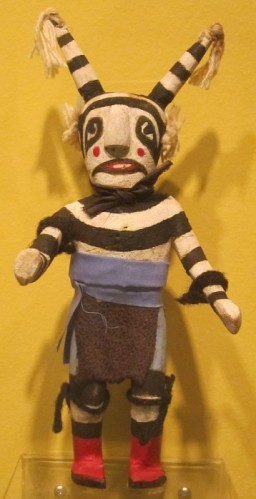
They do everything wrong. The sacred spirits emerge from chambers below the earth, but the clowns rappel down from the roofs of the ancient houses surrounding the plazas, often upside down, hanging from old tires with fraying ropes slung through them that almost always break.
They chase children. They chase women. They make fun of non-Natives and Natives from other tribes. They try to do the same dances the spirits did, but there’s always something a little bit…odd about it. They face the wrong directions. Turn the wrong way. Use a zucchini instead of a gourd for a rattle. You get the idea.
Holy fools. Only if you watch long enough, you realize that like those aunts, they’re imitating somebody. Lots of somebodies. Or local behavior in general. It’s Saturday Night Live, Hopi style. And no one is “sacred” save the clowns themselves, who can and do take on anyone and anything that needs to be dealt with.
And then, also like the aunts, they offer boxes of food and other gifts to those they’ve chased and chastised. And hugs. Holy hugs. There’s nothing more sacred than a clown kiss. Except maybe being allowed to be a clown, from time to time.
I’m a clown, now. A novice clown. Trying to be, anyway. It’s harder than you might think. Or it would be, if my life hadn’t changed so much, the day Jesus decided He wanted to dance with me.
I do not worry about things as much as I used to. I care just as much. I just handle that differently. I try to live the way He asks me to. And I smile a lot. Laugh a lot.
I do what may seem to be foolish little things, in the hope that while all the madness continues a few lives will be touched. Minds will be changed. Hearts will be lifted and gladdened.
I know who I’m voting for. I hope it will make a difference. But only God knows. Or really makes a difference.
I know that now, too. So let’s dance some more.
Photo credit: Koshari (clown) kachina, Arizona, Hopi people, Honolulu Museum of Art, Hiart [CC0], via Wikimedia Commons

